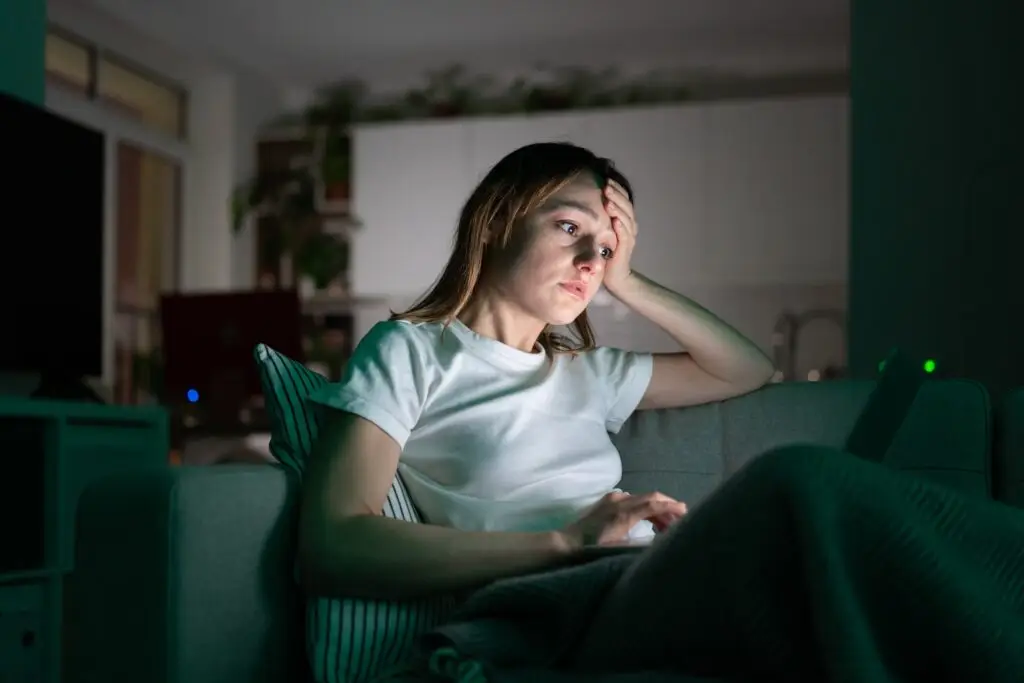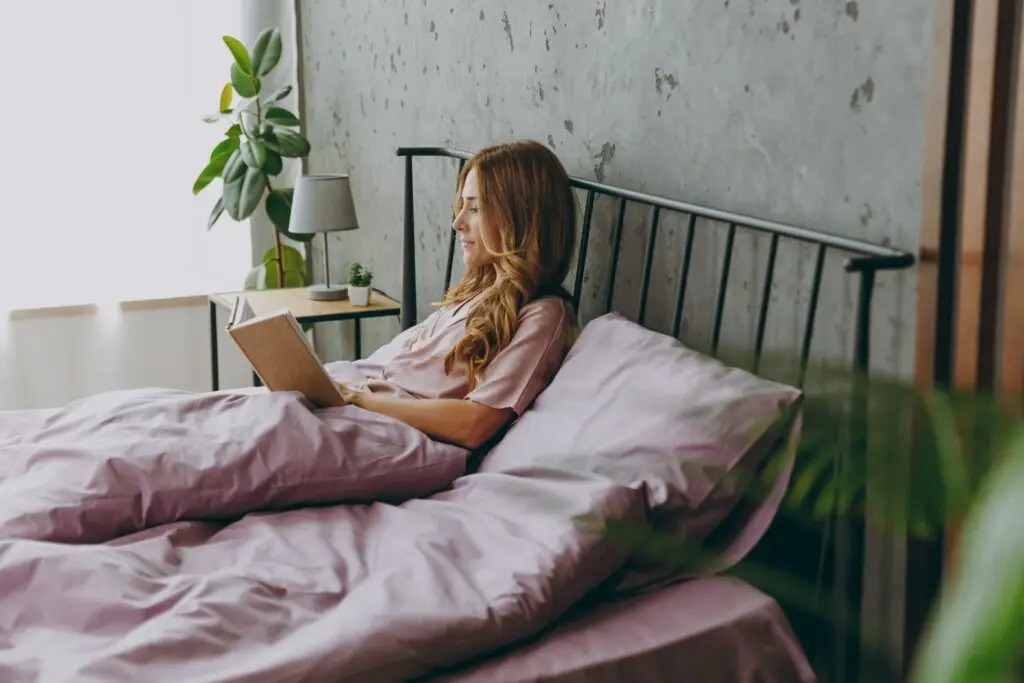Is it hard for you to get consistent, restful sleep?
Are you constantly tired and find it difficult to get things done during the day because of your lack of sleep?
Is ADHD causing your sleep issues?
Living with ADHD can be challenging, especially when it comes to getting a good night’s sleep. If you’re finding it hard to fall asleep or stay asleep, you’re not alone.
Sleep issues are a common struggle when you have ADHD. Understanding the connection between ADHD and sleep issues can help you take the necessary steps to improve your sleep and overall health. Here are five key facts you need to know.
1. What sleep disorders are associated with ADHD?
Common sleep disorders in adults with ADHD
Adults with ADHD often experience a variety of sleep disorders. These can significantly affect your daily life, making it even harder to manage your ADHD symptoms. Here are some of the most common sleep disorders associated with ADHD:
- Insomnia: Difficulty falling or staying asleep, leading to poor quality sleep. Between 43-80% of adults with ADHD experience insomnia.
- Restless legs syndrome (RLS): An uncomfortable sensation in the legs, causing an irresistible urge to move them, often disrupting sleep. Of Adults with ADHD, 44% also have RLS.
- Sleep apnea: A condition where breathing repeatedly stops and starts during sleep, causing frequent awakenings. Around 20% of people with sleep apnea also have ADHD.
- Delayed sleep phase syndrome (DSPS): A disorder where your sleep-wake cycle is delayed, making it hard to fall asleep and wake up at conventional times.
- Circadian rhythm sleep disorders (CRSD): Studies show that CRSDs are common among those with ADHD. This type of disorder affects the body’s day-night cycle. The National Sleep Foundation says that a disruption in this cycle causes issues with the release of melatonin, the sleep hormone.
Understanding these disorders can help you recognize if your sleep issues might be related to your ADHD.

2. Causes of sleep disorders with ADHD
How ADHD affects your sleep
ADHD and sleep issues often go hand in hand. The reasons for this are multifaceted, involving both physiological and psychological factors. Here are some common causes of sleep disturbances in people with ADHD:
- Hyperactivity and restlessness: The hyperactivity and restlessness associated with ADHD can make it difficult for you to wind down at night.
- Impulsiveness: If you experience ADHD, you may tend to act on impulse, which can lead to poor sleep habits. For example, you may stay up late watching TV or playing video games without realizing how it will impact your ability to fall asleep.
- Executive function deficits: These are the brain functions responsible for organizing and carrying out daily tasks. When these functions are impaired, sticking to a consistent bedtime routine becomes harder.
- Medications: Certain ADHD medications, such as amphetamines and stimulants, can disrupt sleep patterns. It is essential to discuss any sleep issues with your doctor if you are taking medication for ADHD.
- Coexisting conditions: Conditions like anxiety and depression, which often co-occur with ADHD, can also contribute to sleep disturbances.
Understanding the root causes of your sleep issues can be the first step toward finding practical solutions.
3. Treatment options for ADHD-related sleep issues
Medications and therapies
There are various treatment options available to help manage sleep problems associated with ADHD. It’s essential to find the right combination that works for you. Here are some standard treatment options:
- Medication adjustments: Working with your healthcare provider to adjust your ADHD medication can sometimes improve sleep.
- Cognitive behavioral therapy for insomnia (CBT-I): CBT-I is an effective, non-pharmacological treatment that focuses on changing sleep habits and attitudes.
- Light therapy: Exposure to bright light in the morning can help reset your circadian rhythm, making it easier to fall asleep at night.
- Continuous positive airway pressure (CPAP): If you are experiencing breathing issues at night or any sleep apnea symptoms, contact your PCP and discuss a sleep study. If the study indicates a breathing issue, a CPAP machine may be a great option to support better sleep.
Discuss these options with your healthcare provider to determine the best course of action for your specific situation.

4. Tips for Improving Sleep with ADHD
Practical strategies to enhance your sleep
Improving your sleep hygiene can make a significant difference in managing ADHD-related sleep issues. Here are some practical tips to help you get better sleep:
- Create a consistent sleep schedule: Go to bed and wake up at the same time every day, even on weekends. This helps your body regulate a routine and rhythm, encouraging your body to wake and sleep with less effort.
- Establish a bedtime routine: Develop a relaxing pre-sleep routine, such as reading a book, taking a warm bath, or practicing mindfulness meditation. Make a list of relaxing activities you want to do before you sleep, then make it a ritual you look forward to.
- Limit screen time: Avoid screens (phones, tablets, TVs) at least an hour before bedtime, as the blue light can reduce the release of melatonin and interfere with your ability to fall asleep. Add a red light filter to your phone at least an hour before bedtime to minimize eye fatigue and the negative impact blue light has on melatonin release.
- Let out your extra energy: Regular physical activity can help reduce ADHD symptoms and improve sleep quality. Just avoid vigorous exercise close to bedtime.
- Create a sleep-friendly environment: Keep your bedroom cool, dark, quiet, and comfortable. Consider using blackout curtains, white noise machines, or earplugs if necessary.
- Monitor what you consume at night: Avoid caffeine and heavy meals close to bedtime. Opt for a light snack if you’re hungry before bed. Heavy meals and caffeine can cause your body to increase energy to digest. Avoid these two to enhance your relaxation at night.
Implementing these strategies can help you improve your sleep habits and overall quality of life.
5. When do you need professional help?
Recognizing the need for professional intervention
Sometimes, despite your best efforts, sleep issues may persist. It’s important to recognize when you need professional help. Here are some signs that it might be time to seek assistance:
- Chronic sleep problems: If you’ve been struggling with sleep issues for more than a month, it’s time to consult a professional.
- Severe daytime sleepiness: If your sleep problems are causing significant daytime fatigue or affecting your ability to function, those symptoms need immediate attention for your safety.
- Impact on mental health: If sleep issues are worsening your ADHD symptoms or contributing to anxiety, depression, or other mental health concerns, professional intervention is crucial.
- Medication concerns: If you suspect your ADHD medication is interfering with your sleep, talk to your healthcare provider about possible adjustments.
Reaching out to a mental health professional can provide you with the support and treatment you need to manage your ADHD and improve your sleep.
How Makin Wellness can help
Your partner in mental health
At Makin Wellness, we understand the unique challenges of ADHD and sleep issues. Our team of experienced therapists is dedicated to helping you find effective solutions to improve your sleep and overall mental health. We offer personalized online therapy plans tailored to your needs, including cognitive-behavioral therapy, and evidence-based approaches to mental health.
Why choose Makin Wellness?
- Specialized in ADHD and sleep issues: Our professionals are well-versed in the complexities of ADHD and its impact on sleep.
- Research-backed care: We provide a thorough approach to mental health, addressing all facets with evidence-based practices.
- Convenient online therapy: You can access our services from the comfort of your home, making it easier to get the help you need.
Don’t let ADHD and sleep issues control your life. Take the first step towards better sleep and improved mental health with Makin Wellness.

Conclusion
Understanding the connection between ADHD and sleep issues is crucial for improving your quality of life. By recognizing the common sleep disorders associated with ADHD, identifying the causes, exploring treatment options, and implementing practical sleep strategies, you can take control of your sleep and overall mental health.
If your sleep problems persist, don’t hesitate to seek professional help.
At Makin Wellness, we support you on your journey to better mental health and restful sleep. Call us at (833)-274-heal or start here to schedule an appointment to finally address your sleep issues affected by your ADHD symptoms.








